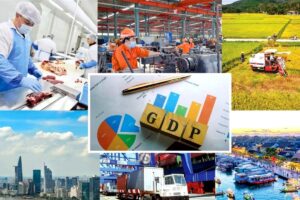Thị trường năng lượng tái tạo tại ASEAN đang mở ra nhiều cơ hội mới cho các startup với mục tiêu đảm bảo 23% năng lượng từ nguồn tái tạo vào năm 2025. Tuy nhiên, bên cạnh tiềm năng phát triển, các doanh nghiệp cũng phải đối mặt với nhiều thách thức về công nghệ, tài chính và cơ sở hạ tầng.
Multifaceted Challenges in Renewable Energy Development
According to experts, renewable energy project development in ASEAN still faces substantial barriers. Research from the Habibie Center indicates that access to finance is a crucial factor, as these projects require significant investment resources. The lack of financial support, particularly from the public sector, makes the industry less attractive to investors.
Furthermore, the absence of a clear legal framework coupled with complex administrative procedures poses major obstacles for renewable energy projects. Mr. Adnan Amin, Director General of the International Renewable Energy Agency (IRENA), emphasizes the need for close cooperation between public and private sectors to overcome these challenges and facilitate investment flow into the industry.

Renewable Energy is Opportunities and Challenges for ASEAN Startups
Geographic and Technical Difficulties
Complex geographical conditions in countries like Indonesia and Philippines create significant challenges for infrastructure development. The archipelagic nature of these nations leads to grid fragmentation, severely impacting energy transmission efficiency.
Current Technological Limitations
Technically, converting various forms of energy into electrical power still faces many constraints. PV and CSP technologies are the two main solutions being implemented, but each has its drawbacks. Particularly in Southeast Asia, temperatures above 25°C affect equipment efficiency and lifespan.
These technological limitations require startups to continuously innovate and seek creative solutions. Many companies are focusing on developing new technologies to improve energy conversion efficiency and extend equipment life in tropical climate conditions. This presents both a challenge and an opportunity for startups with research and development capabilities.
Future Development Opportunities
ASEAN has set an ambitious target of ensuring 23% of primary energy comes from renewable sources by 2025. This serves as a crucial driver for industry development in the region.
Technology and Market Potential
Technological advancement is helping reduce renewable energy production costs, creating favorable conditions for businesses entering the market. Malaysia has become the world's third-largest photovoltaic cell manufacturer, while Thailand is accelerating investment in solar energy.
According to The ASEAN Post, buildings currently account for approximately 40% of final energy consumption in Southeast Asia. This presents a significant opportunity for startups to develop smart energy-saving solutions, from building energy management systems to energy-efficient construction materials. Many businesses have begun implementing IoT and AI technologies to optimize energy use in commercial and residential buildings.
Green Transportation Trends
The electric vehicle (EV) sector is attracting particular attention from startups and investors. Singapore leads with numerous successful trials, while Thailand is striving to become the region's EV manufacturing hub through tax incentive policies.
With energy demand projected to increase by 50% in the coming years, ASEAN's renewable energy sector is creating numerous opportunities for startups. However, to succeed, businesses need sustainable development strategies, investment in technology, and effective utilization of government support policies.
Cre: Startup VnExpress
>> See more: Vietnam: The sole ASEAN Nation with large-scale offshore wind energy potential







